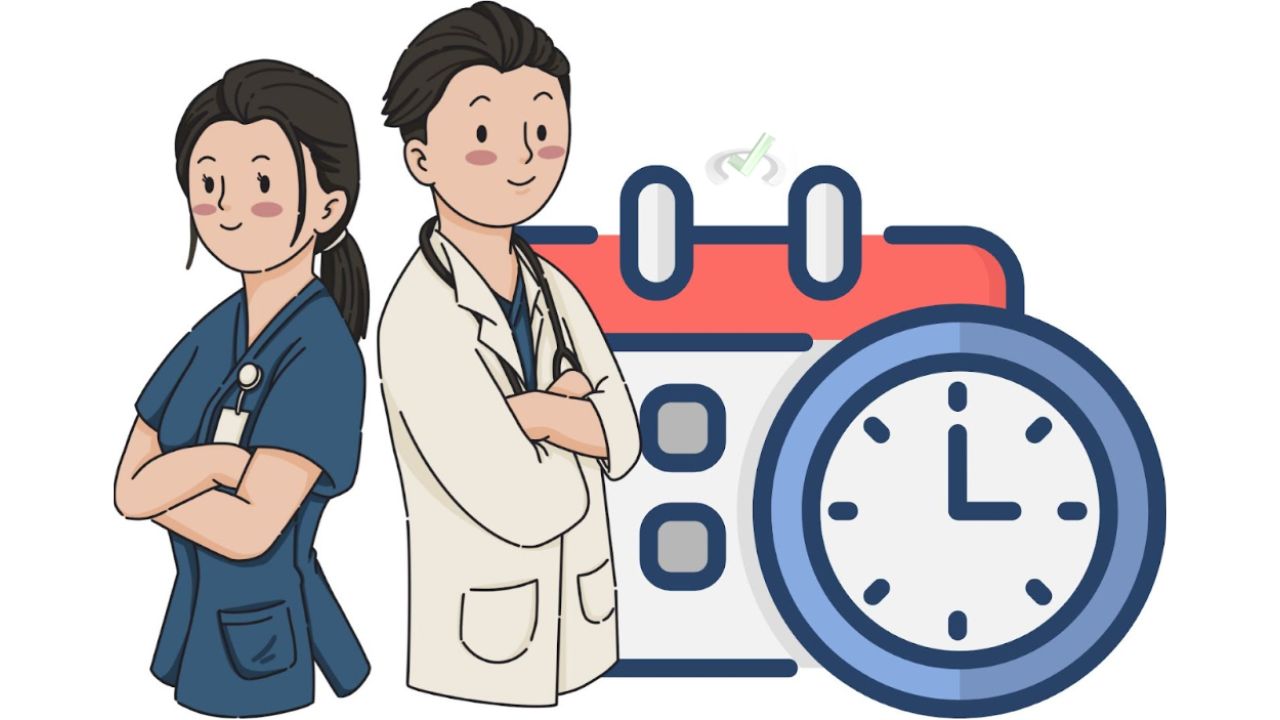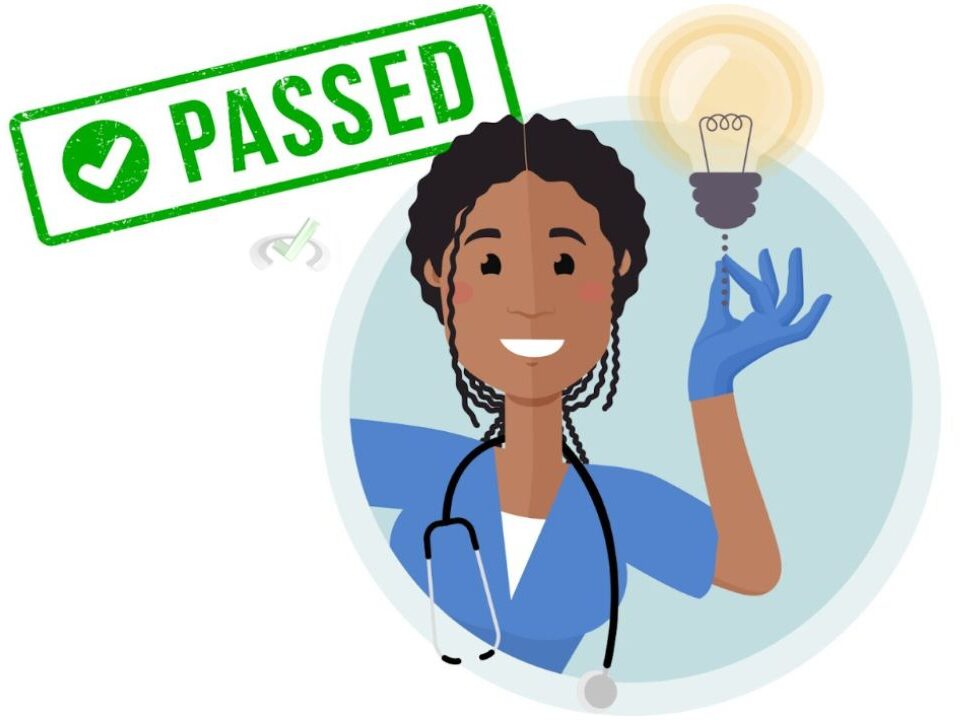
You walk out of the NCLEX testing center, heart racing. That was a mental rollercoaster. Some questions felt simple. Others made zero sense. The computer shut off at 75 questions, or maybe it stretched to 145. Now you’re stuck in that weird post-exam limbo, questioning everything.
And now, the real challenge begins. When do you get NCLEX results? That’s the burning question. You check your Pearson VUE account. Nothing. Refresh your email. Still nothing. Every minute drags on, making the wait unbearable.
The truth? NCLEX results don’t follow a random system. They go through a process. Some people get theirs in two days. Others wait weeks. But why? What causes the delay? Let’s clear up the confusion and break down exactly what happens after you submit your exam.
How Long Does It Take to Get NCLEX Results?
NCLEX results don’t appear instantly. The exam undergoes an evaluation process to ensure fairness and accuracy. The timeline varies depending on different factors, but here’s a general idea of how long it takes:
Your results follow a structured process, controlled by your state board of nursing. Some move faster than others, which is why some test-takers see their results quickly while others wait longer.
Understanding the NCLEX Scoring Process
After you hit submit, the NCLEX goes through several layers of evaluation before results get released.
1. Computer Adaptive Testing (CAT) Scoring
NCLEX uses Computer Adaptive Testing (CAT) to determine competency. The system doesn’t just look at how many questions you answered correctly—it evaluates the difficulty level of the questions you got right.
2. Double-Check Scoring
Once you finish, the system automatically scores your exam. No human interference. No second-guessing. Every exam undergoes this automated scoring.
But to ensure fairness, some exams get randomly selected for further review. This means an extra layer of verification, which can delay results.
3. State Board Processing
Even after NCLEX-RN or NCLEX-PN results are finalized, your state board of nursing must process and release them. Some states move fast, while others take extra time due to high application volumes.

Why Some People Get Their NCLEX Results Faster
Ever notice how some test-takers claim they got their results in two days, while others wait for weeks? Several factors affect the speed of NCLEX result processing.
1. The State Board’s Efficiency
Each state board follows its own procedure. Some release results quickly, while others take longer due to additional steps like background checks or application reviews.
2. The Day You Took the Exam
If you take the NCLEX-RN or NCLEX-PN on a Monday or Tuesday, you may receive results sooner. But if you test on a Friday, results may take longer due to weekend delays.
3. Exam Review and Audits
Some exams get flagged for extra review, causing unexpected delays. This doesn’t mean you failed—it’s just part of the quality control process.
4. Issues with Application or Documentation
If your application has mismatched details (like a name misspelling), your results may be delayed while the board resolves the issue.
NCLEX Quick Results: Are They Worth It?
If patience isn’t your strong suit, the Quick Results Service allows you to see unofficial results within 48 hours. But should you pay for them?
How Quick Results Work
Do Quick Results Guarantee Accuracy?
Yes. If Quick Results say you passed, you passed. If they say you failed, you failed. But these results aren’t official—your state board still needs to verify and issue your license.
What If Your NCLEX Results Are Delayed?
Delays happen, and they don’t always mean bad news. Here’s what might be causing the wait:
1. The Pearson VUE Trick Doesn’t Work
Some test-takers attempt the Pearson VUE Trick—trying to re-register for the NCLEX. If the system blocks them, they assume they passed. If it allows them to pay again, they assume they failed. But this method isn’t reliable.
2. Your Exam Might Be Under Review
The NCSBN randomly selects some exams for additional verification. This process ensures scoring accuracy but can cause delays.
3. Your State Board Is Processing Applications in Batches
Some state boards process results in weekly or biweekly cycles. If your test date falls just before a processing cutoff, you may wait longer.
How to Check Your NCLEX Results
Once you finish your exam, here’s where to check for updates:

What Happens After You Pass the NCLEX?
You passed! Now what?
Once your license is active, you can start applying for nursing jobs.
How to Stay Sane While Waiting for NCLEX Results
The waiting period after taking the NCLEX can feel unbearable. The uncertainty, the urge to check Pearson VUE every five minutes, and the constant overthinking of every single question can drive anyone crazy.
While you wait, it’s important to take care of yourself and avoid unnecessary stress. Here’s how you can stay calm and productive while waiting for your NCLEX results.
1. Limit Checking for NCLEX Results
It’s tempting to check your email or Pearson VUE account every hour, hoping for an update. But obsessing over it won’t make the results come any faster.
2. Keep Yourself Busy with Something Positive
Instead of worrying, shift your focus to something enjoyable.
Keeping your schedule full helps time pass faster and reduces unnecessary stress.
3. Prepare for the Next Steps
Regardless of whether you pass or fail, you will need a plan for what comes next.
The waiting game after NCLEX can be tough, but you don’t have to go through it alone. Get a daily dose of motivation, test-taking strategies, and NCLEX-style practice questions straight to your inbox.
Whether you’re anxiously waiting for results or preparing for the exam, our NCLEX Daily Dose Emails will keep you focused and confident. Subscribe now and stay on top of your NCLEX journey!Best Strategies to Pass the NCLEX on Your First Try
One of the biggest concerns for nursing students is passing the NCLEX on their first attempt. The pressure is high, and the fear of failing can make studying even more stressful.
But with the right NCLEX studying approach, you can improve your chances of success. Let’s go over the best strategies to prepare effectively and walk into the exam with confidence.
1. Understand How the NCLEX Works
Before diving into study materials, get familiar with how the NCLEX is structured. The exam uses Computer Adaptive Testing (CAT), which means:
Knowing this helps you stay calm during the test, even when questions seem hard.
2. Develop a Study Plan That Works for You
Cramming last-minute never works for NCLEX. Create a realistic study plan based on your strengths and weaknesses.
Consistent studying beats last-minute cramming every time.
3. Prioritize NCLEX Practice Questions and Tests
One of the best ways to prepare is by answering NCLEX-style questions as much as possible. The more you practice, the more comfortable you become with the test format.
Practice questions train your brain to think the way NCLEX expects you to.
4. Master the NCLEX Test-Taking Strategies
Even the best students can struggle if they don’t know how to approach NCLEX questions correctly.
Sometimes, two answers seem correct, but one follows the NCLEX way of thinking. Stick with the one that aligns with nursing fundamentals.
5. Focus on High-Yield NCLEX Topics
Not all nursing topics are tested equally. Some areas come up more often than others.
Must-know topics for NCLEX:
If time is limited, focus on these core areas—they show up frequently on the exam. Want to study smarter, not harder? Grab our NCLEX Cheatsheets—your quick-reference guide to test strategies, question types, and must-know nursing concepts. Perfect for last-minute prep or a structured study plan, these cheatsheets help you focus on what matters most.
6. Simulate Exam Conditions
Taking practice tests under real exam conditions helps with test anxiety and endurance.
This builds mental stamina, ensuring you don’t get exhausted halfway through the actual exam.
7. Take Care of Your Health Before Exam Day
Don’t underestimate the importance of rest and self-care before the exam day.
Walking into the NCLEX well-rested gives you a better chance of thinking clearly and making smart decisions.

What If You Fail the NCLEX?
Failing doesn’t mean the end of your nursing career. Plenty of great nurses didn’t pass on their first try.
1. Review Your NCLEX Candidate Performance Report (CPR)
If you fail, the NCSBN provides a detailed breakdown of your performance. This report highlights which areas need improvement.
2. Plan for Your Retake
Use this time to focus on weak areas and refine your study plan.
Final Thoughts on When Do You Get NCLEX Results?
So, when do you get NCLEX results? Most test-takers see their results within 2-6 weeks, while some can access Quick Results in 48 hours. The timeline depends on your state board, whether your exam gets flagged for review, and how fast your license gets processed.
If you don’t see results immediately, don’t assume the worst. The NCLEX scoring system follows strict guidelines, ensuring accuracy for every candidate. Keep an eye on your Pearson VUE account and state board website for updates.
Waiting for NCLEX results can feel like torture, but soon enough, you’ll have that official license in your hands. And then, the real adventure begins.
